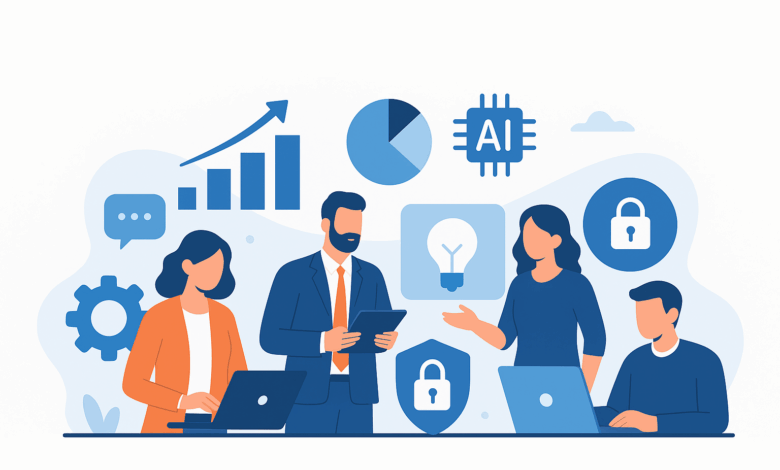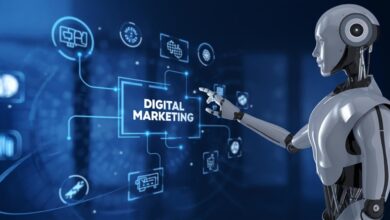The Digital Skills Every Professional Needs in 2025

With each passing day, the work environment is changing, and digital skills are not only an option but a requirement. With the world being transformed by technology, employees have to keep up to be relevant and useful. By 2025, it is no longer going to be technical expertise but adaptability, creativity, and knowledge of digital trends that characterise the workplace of the future.
1. Data Literacy: The Capacity to Interpret the Vocabulary of Information
Information has become the decision-making platform for almost every enterprise. Whether it is marketing, finance, medicine, or education, the data-driven decision-makers are light-years ahead. Data literacy is not so much reading the charts as anything else. It is learning to read patterns, detect glimmers of insight, and apply analytical tools to make decisions. Companies will look for individuals at all levels to lead with data-infused wisdom in 2025.
2. Automation and Artificial Intelligence Capabilities
Artificial intelligence and automation are redefining the work nature, from predictive analytics to customer support chatbots that offer self-service. It is essential to learn how to collaborate with AI systems. They don’t need to be engineers but learn to familiarize themselves with how to implement AI tools to become more productive and creative. They will be in a position to automate tasks and drive dull work away with a vision of automation workflows.

3. Cyber Collaboration and Communication
Remote and hybrid remote offices are still the new normal of today’s workplace. Tools like Slack, Zoom, and Microsoft Teams are now the standard of virtual collaboration. Virtual communication above technical skills require emotional intelligence, brevity in writing, and an ability to collaborate with multitudes of teams. By 2025, professionals with the ability to actually connect through digital channels will be leading successful collaborations and creating effective organizational culture—geography-dropping.
4. Cybersecurity Awareness
Increased digitalization means increased exposure. Cybersecurity is no longer the sole domain of the IT teams but everyone’s concern, and everyone needs to develop basic competence in digital security. Phishing attacks, how to protect personal data, and best security principles are a few of the essential skills. Employees who show awareness and sense of responsibility for securing information will help in making cyberspace safer.
5. Creativity and Design Thinking
Computers will do drudgery, but creativity will remain a human asset. Design thinking—a rational problem-solving approach with creativity—will be the force behind innovation in 2025. Whether designing intuitive digital experiences or business model innovations, problem-solving creative experts will be the demand of the time.
6. Flexibility and Continuous Learning
Technology is racing never before, and so is the professional. The best in 2025 is acquiring new ways and ideas for no time at all. Ever-expanding learning, masquerading as certificates, online courses, or self-taught expertise, stays ahead of the curve. Ability to learn and questioning professionals will thrive in the future propelled by change.

Entire Thoughts
2025 is not a profession that asks for something new from traditional talent—it asks for futurism, technical know-how, and flexibility. Technical skills of such caliber, as required, not merely expand professional horizons but allow professionals to define the working future. The equation is straightforward: stay smart, stay nimble, and never cease to learn. If innovation is necessary to survive, then the individuals who lead with digital wisdom will chart the future.


